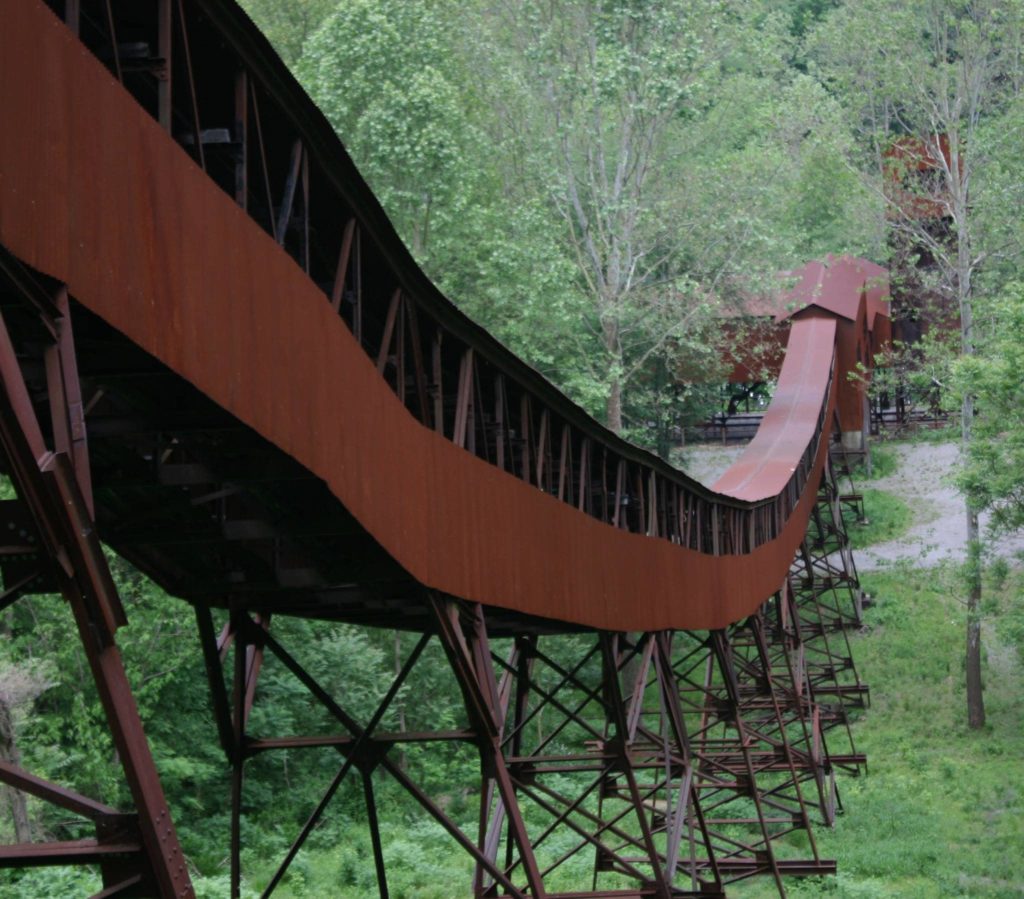
One of the most important features of the New River Gorge National Park is its amazing history. Whether you are interested in human or natural history, the park has countless opportunities to satisfy your curiosity about the past. We recommend exploring the history of coal mining in order to truly understand the importance of our newest national park.
Start by standing on the rim of the New River Gorge and looking down. It’s hard to imagine that the deep, narrow, lush landscape before you was once bustling with industrial activities. Try to imagine most of the trees gone. Smoke billowing up from the numerous coke ovens. Trains passing through every hour, most filled with coal. Coal the fledgling country needed to grow into a world power.
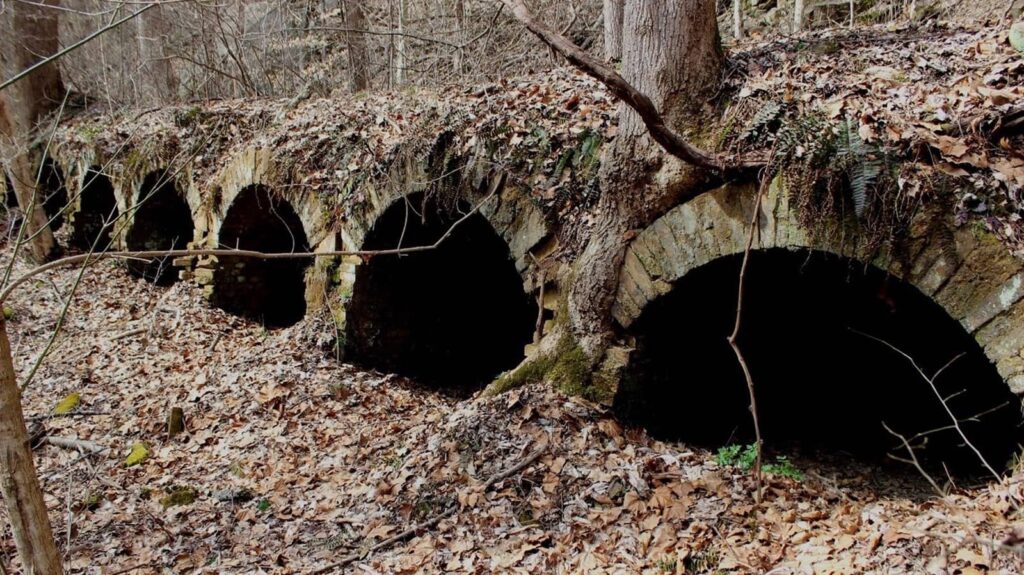
Preserving Places That Matter
One of the National Park Service’s emphasis areas is “Preserving Places That Matter.” In the New River Gorge, this emphasis plays out in the intentional preservation of sites and artifacts relating to the coal mining and railroad industries that helped define the New River Gorge prior to coming under the care of the NPS in the early 1960s.
Like most people these days, we first saw the New River Gorge as an outdoor playground. We hiked the trails and rafted the river here long before we began to discover and appreciate the history and culture. But once we did, it became seamlessly connected to our other pursuits. When hiking the Southside Trail, for example, we always take time to explore the ruins of Brooklyn, the coke ovens of Rush Run, and pause for a moment of reflection when we pass the tragic site of Red Ash Island.
We thought we’d share some of our favorite historic and cultural features of the Park in the hopes that you might find them as fascinating as we do.
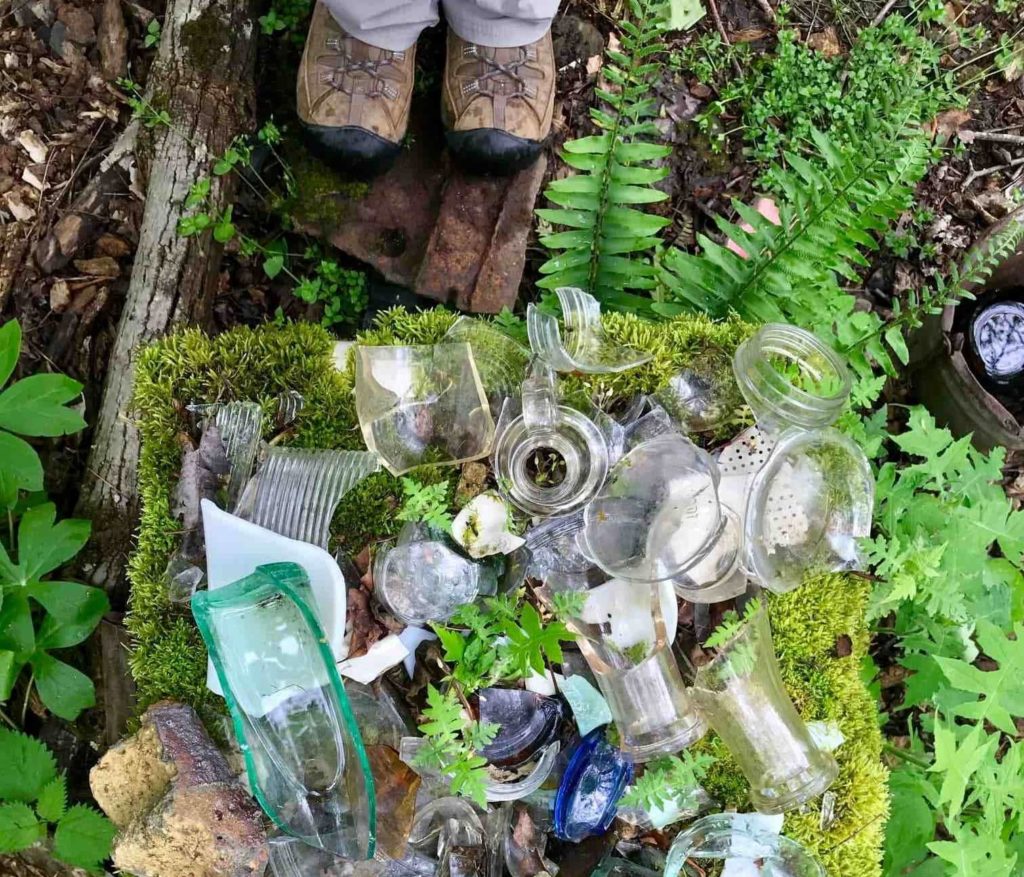
Nuttallburg Coal Mining Complex
Nuttallburg is the most history-dense and accessible site in the Park. The centerpiece is the well-preserved and massive conveyor that moved coal from the mine opening halfway up the side of the Gorge to the equally massive tipple along the railroad 500’ below.
When you visit Nuttallburg via the long, winding road through the Kenny’s Creek ravine, you are retracing the path first cut by John Nuttall, one of the first industrialists to see the economic potential of the New River Gorge. Arriving at the bottom of the gorge, you have the opportunity to walk among the foundations of houses, schools, and churches that once made up a bustling community of coal mining families and railroad workers.
The National Park Service has created excellent signage to interpret the history. Here, you can see and touch the coke ovens used to process the coal for use in steel mills and get a strong sense of what it must have been like when coal was king.
There are many trails in Nuttallburg. The easiest is the trail that leads from the tipple area to Seldom Seen, a former residential community along the river where many Nuttallburg mining families lived. When the mine closed, people left in haste. They left behind many housewares and other artifacts, which the National Park Service has watched over for decades to ensure they remain part of the historical record.
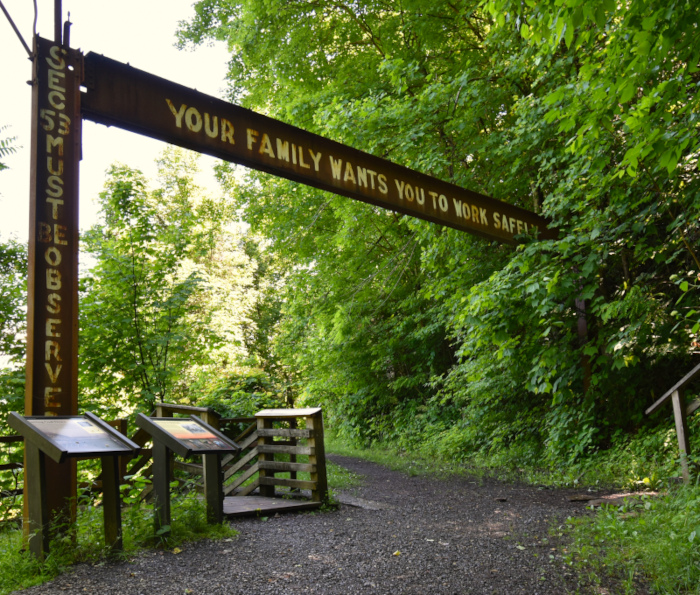
Kaymoor Top, Mine, and Bottom
Kaymoor is another of the great mining history locations in the park. Kaymoor Top, as locals know it, sits predictably at the top of the gorge. Here you can find the Kaymoor Miner’s Trail, a short but steep hike halfway down the gorge to the mine opening which is remarkably well-preserved with several structures still standing and a large sign that admonished miners that “Your Family Wants You To Work Safely.”
Kaymoor Bottom can be accessed from here by a long staircase that leads to the bottom of the gorge (a continuation of the Kaymoor Miner’s Trail). Be warned, there are over 850 steps to the bottom! Down there are more buildings and railroad ruins, but getting there and back is more than the average casual hiker might wish to try.
When the mine was operational, miners and their families lived at both the top and bottom of the gorge. Tip: Make sure to check out the “Haulage” display at the top to see how people got up and down the gorge when the mine and town were operational.
Another, less strenuous way to visit the Kaymoor mine site is by taking the Kaymoor Trail from Fayette Station Road. The mine is located approximately two miles from the trailhead (4-mile round trip) and the trail is mostly level after a moderate incline near the beginning.

Rail Lines Turned Rail Trails
While Kaymoor and Nuttalburg are the two most intact sites to experience coal mining history, it’s hard to venture through any part of the national park without encountering some remnant of coal’s impact on the region. The many great rail trails in the park were built on railroad lines whose sole purpose was to transport coal to market. Along these trails, the curious hiker can see and touch many abandoned building foundations and coke ovens that were built to support the coal mining industry.
The Southside Trail, which runs from Cunard to Thurmond, passes through several important coal mining sites and former towns. A good hiking guide like Bryan Simon’s “Hiking and Biking in the New River Gorge” will help draw your attention to these sites and interpret their history. We have Bryan’s book in every flat at Lafayette Flats Boutique Vacation Rentals and the shop on our first floor, Lost Appalachia, sells it.
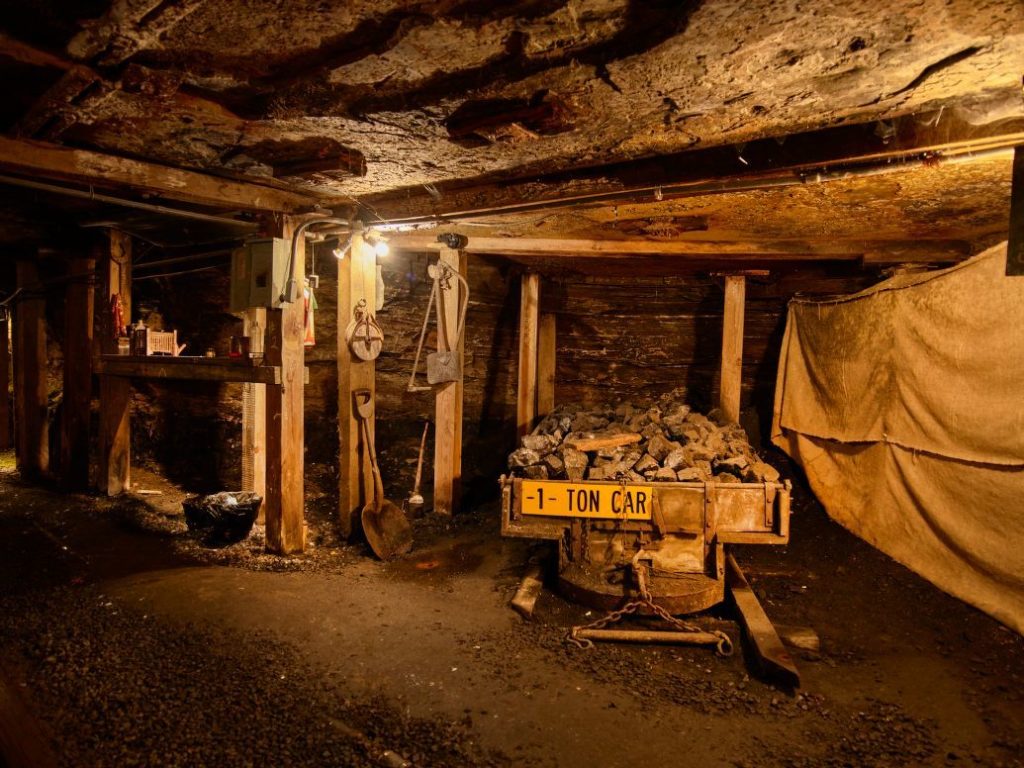
Tour an Old New River Gorge Coal Mine
Thirty minutes from Fayetteville is the Beckley Exhibition Coal Mine, where visitors can ride through the dark passages of a vintage coal mine. The guides are veteran miners and provide firsthand accounts of the daily responsibilities and travails of past and present-day miners. In addition to the mine, many period coal camp buildings are situated throughout the grounds. The Exhibition Coal Mine operates on a seasonal schedule, opening around April 1 and closing around November 2.
Other Things to Consider
- When exploring a historic site within the national park, remember to “take nothing but pictures and leave nothing but footprints.” The artifacts that sometimes seem randomly strewn about the forest floor in places have been preserved that way on purpose and should remain intact as part of the historical record.
- Be careful around old structures. They can become unstable with age, and they often have become homes for wildlife such as venomous snakes.
- Barricades on mine openings are there for safety, yours and the bats that live within them. It is never safe to enter an abandoned mine.
Who are we? Amy & Shawn, New River Gorge hikers, Master Naturalists, and owners of Lafayette Flats Boutique Vacation Rentals in Fayetteville, WV – the heart of the New River Gorge National Park.
If you enjoyed this post you might also like:
Our 10 Favorite Books About the New River Gorge
10 More New River Gorge Curiosities
Our 10 Favorite Off-the-Beaten-Path Spots in the New River Gorge
Hiking Through History in the New River Gorge

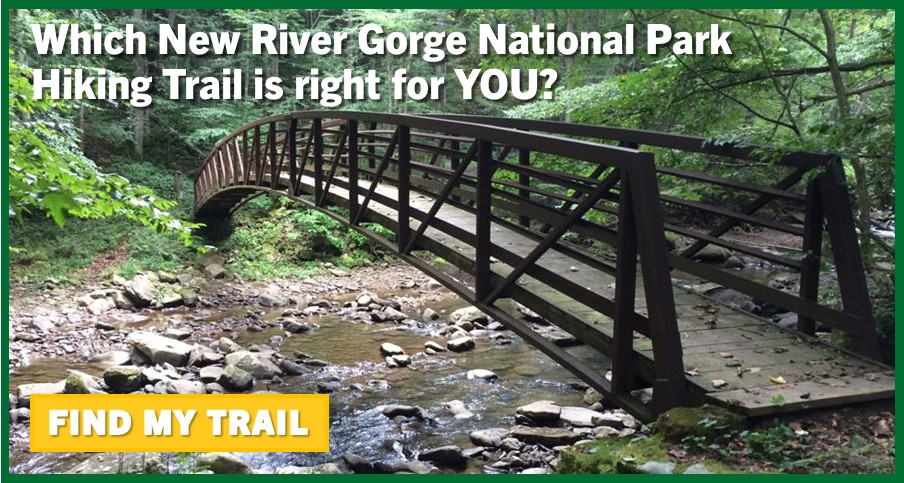
comments +